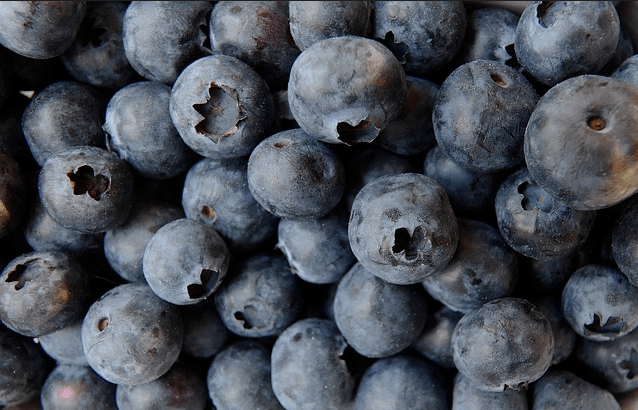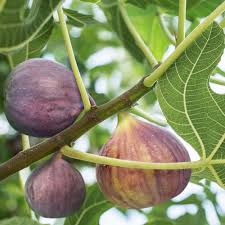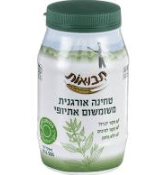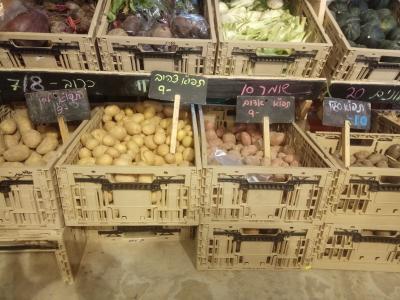The Hebrew name for what the world knows as "blueberry" is okmaniyot (אוכמניות). Sometimes I struggle with Hebrew names, but this is not one of those cases. The name "אוכמניות" rolls off the tongue just like the sweet-tart little fruit itself.
Although it's a Hebrew name, it actually derives from the ancient sister language, Aramaic. Aramaic, nearly extinct today, was one of the main languages in the Levant until the mid-6th century CE. The name comes from the Aramaic word "אוכמא" (okma), meaning "dark," aptly describing the fruit's dark blue-black appearance, or my favorite, purple.
Let's be honest; we Israelis are not very acquainted with blueberries and often see them as an exotic treat. This is strange because wild varieties of this fruit are found in Asia, Europe, and across the Atlantic. Most commercial varieties, including those grown in places like Australia or even Israel, are based on North American strains. Foraging hunter-gatherers have recognized blueberries as a vital food source since the dawn of history.
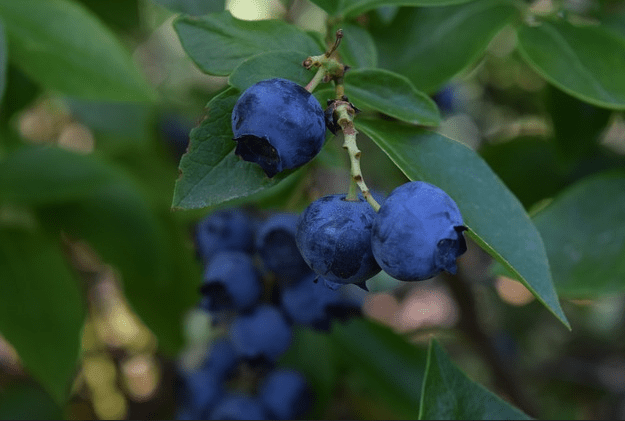
It's time to stop treating blueberries with such reverence. In a perfect world, this fruit should be commonplace. Our world is far from perfect, and paradoxically, while blueberries and other small, tasty berries were readily available to hunter-gatherers 30,000 years ago as they foraged by the stream, in our modern era, they have become rare and expensive delicacies.
Blueberries are one of those fruits that don't easily transition to commercial cultivation. The fruits are small, and harvesting is complex. Large-scale commercial blueberry farming only began in North America in the 1930s. Even today, despite their global spread, blueberries remain a relatively niche agricultural crop, and their cost reflects that. It's a pity.
That said, it’s worth seeking out blueberries whenever possible, especially this week when they are available in the store from a sustainable farm near Moshav Beit Zait. Founded in 2013, this farm combines education with organic farming and has become one of our favorite organic growers over the past decade. They offer organic produce that’s less common in Israel, such as their fantastic purple blueberries that burst in your mouth with a symphony of flavors.
There's no need to elaborate on how beautiful and even 'sexy' blueberries are; their rich flavor, shape, and color make them the queen of desserts. I'm here to remind you that they are also very healthy. The purple color of blueberries indicates a high concentration of a pigment called anthocyanin.

Anthocyanin is the pigment responsible for the red color in many fruits. So why are blueberries purple? Because they contain a much higher concentration of anthocyanin compared to other fruits.
This is beneficial because anthocyanin is a powerful antioxidant. It can help reduce inflammation and improve skin health by promoting collagen production. Moreover, blueberries are low in calories yet high in nutritional value. There is also evidence suggesting that they may help lower blood cholesterol levels and prevent heart disease.
All these are excellent reasons, but the best reason is that they are delicious and, as mentioned, they are available right now.

